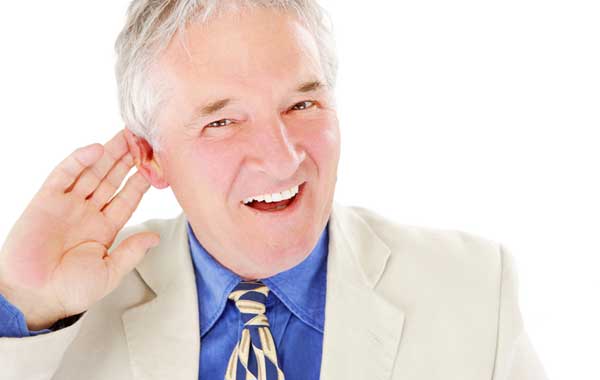The Healthy Geezer: How Dangerous Is the Sound Level of Rock Music?

Question: I'm worried about my hearing because I played in a rock band when I was a kid. How dangerous is the sound level on the bandstand?
Answer: Sound volume is measured in decibels (dB). You risk hearing loss when you are exposed to sounds at 85 decibels or more. The louder the sound and the longer the exposure, the greater the risk.
Here's the bad news: rock music is on many lists as an example of a dangerous sound. Here's one of those lists:
30 dB = library50 dB = rain60 dB = conversation (apolitical)70 dB = vacuum cleaner80 dB = busy street90 dB = shop tools100 dB = chain saw110 dB = rock music among audience120 dB = rock music on bandstand130 dB = jackhammer140 dB = air raid siren150 dB = rock music crescendo
If I played electric guitar in the 1960s next to one of those gigundo amplifiers, I'd get to a doctor for an ear exam.
But you don't have to be a rocker to suffer from noise-induced hearing loss (NIHL); anyone at any age can be a victim. About 10 percent of Americans between ages 20 and 69 already may have suffered permanent damage to their hearing from excessive noise.
You can sustain NIHL at work, play or sitting around the house. Music players turned up too high can damage your ears. Woodworking can be an unsafe hobby. Leaf-blowers reach hazardous sound levels.
Get the world’s most fascinating discoveries delivered straight to your inbox.
Most people's hearing diminishes with age. About 1 in 3 Americans over age 60 suffers from some loss of hearing, which can range from the inability to hear certain voices to deafness. Those who are healthy and not exposed to loud noise can maintain their hearing for many years.
The first symptom of NIHL is the inability to pick up high-pitched sounds, or not understanding conversation in a crowd. As hearing declines, you lose the lower-pitched sounds.
Prevention is the key to NIHL. Here is some advice to avoid damage to your ears:
- Avoid exposure to noise when possible.
- When you can't avoid noise, wear earplugs that are available in drugstores. Earplugs can stop 25 dB of sound. Cotton in your ears doesn't work.
- You can cut down noise in the home with rubber mats under appliances and carpets on floors. Drapes on windows help keep outside noise from coming into you home.
- Turn down the volume on TVs, radios, music sound systems and portable MP3 players. Be especially careful to keep the volume down if you wear ear buds.
- Don't sit near speakers at concerts, dances or weddings.
- Look for noise ratings when buying any product that creates sound such a hair dryer. Choose quieter models.
If you have a question, please write to fred@healthygeezer.com
All rights reserved
 Live Science Plus
Live Science Plus





